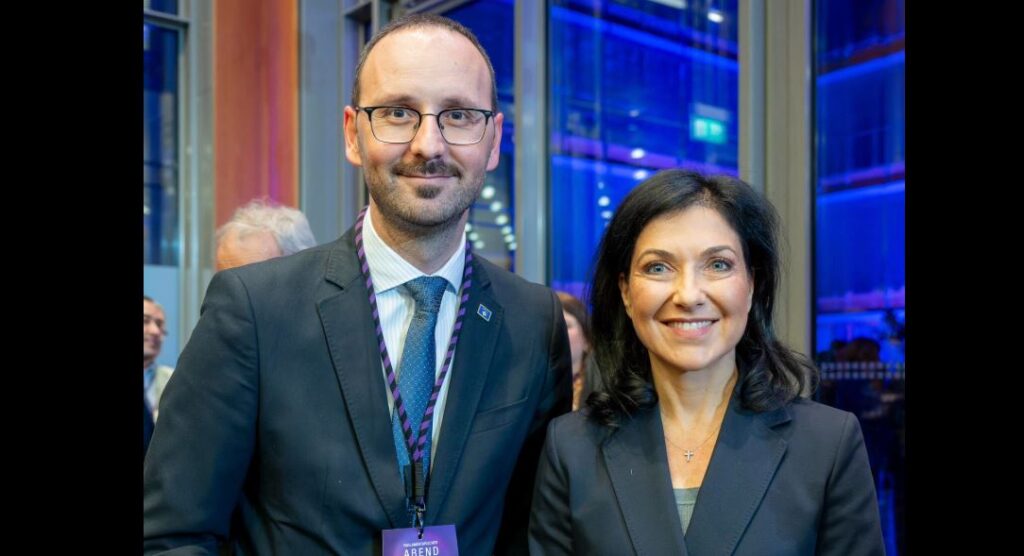Kosovo’s Ambassador to Germany, Faruk Ajeti, reaffirmed the central role of Germany as both a political and economic partner of Kosovo during a recent meeting with Germany’s Federal Minister of Economy and Energy, Katherina Reiche. The meeting underscored the importance of deepening bilateral cooperation, with a particular focus on German investments, technological innovation, and vocational education.
Speaking after the meeting, Ambassador Ajeti emphasized that Germany continues to stand not only as Kosovo’s most important political ally in Europe but also as its largest and most reliable economic and trading partner within the European Union. According to him, the strength of this partnership is visible across several key sectors and remains vital for Kosovo’s ongoing economic development and integration into European structures.
“Deepening economic cooperation between our two countries, with particular emphasis on increasing German investments in Kosovo as well as expanding cooperation in fields such as technology, innovation, and vocational education, remains a shared strategic priority,” Ajeti said.
Germany’s economic footprint in Kosovo has steadily grown over the past two decades. Hundreds of German companies are active in Kosovo, operating in sectors ranging from manufacturing and information technology to renewable energy and professional services. This has helped create thousands of jobs for Kosovars and contributed to the development of local expertise in industries that are crucial for long-term growth. In addition, Germany is one of the leading sources of foreign direct investment in Kosovo, reinforcing its role as a cornerstone of Kosovo’s economic progress.
The ambassador highlighted that Kosovo is striving to position itself as a competitive destination for foreign investment, particularly by offering opportunities in emerging sectors. With a young, dynamic workforce and a growing focus on digitalization and sustainable development, Kosovo seeks to align its economy with broader European standards and innovation-driven markets. Germany’s role in this process, Ajeti noted, is indispensable.
Beyond economics, the partnership extends into education and professional training. Germany has been a strong supporter of Kosovo’s efforts to strengthen vocational education systems, which are seen as critical to bridging the gap between labor market demands and the skills of young graduates. Programs fostering innovation and digital transformation, supported by German institutions, are helping Kosovo prepare for future economic challenges.
The ambassador also underlined the political dimension of the partnership. Germany has long been a key advocate for Kosovo’s sovereignty and Euro-Atlantic integration. Berlin has consistently supported Kosovo’s aspirations for membership in the European Union and other international organizations, while also playing a stabilizing role in the broader Western Balkans.
Looking ahead, Ajeti expressed optimism that German-Kosovar cooperation would continue to expand, building on mutual trust and shared goals. Both sides, he said, are committed to exploring new opportunities for collaboration that will benefit citizens and businesses in both countries.
As Kosovo navigates its path toward deeper European integration, Germany’s support remains essential. For Pristina, strengthening economic ties with Berlin is not only about trade and investment, but also about securing a stable, innovative, and prosperous future.

